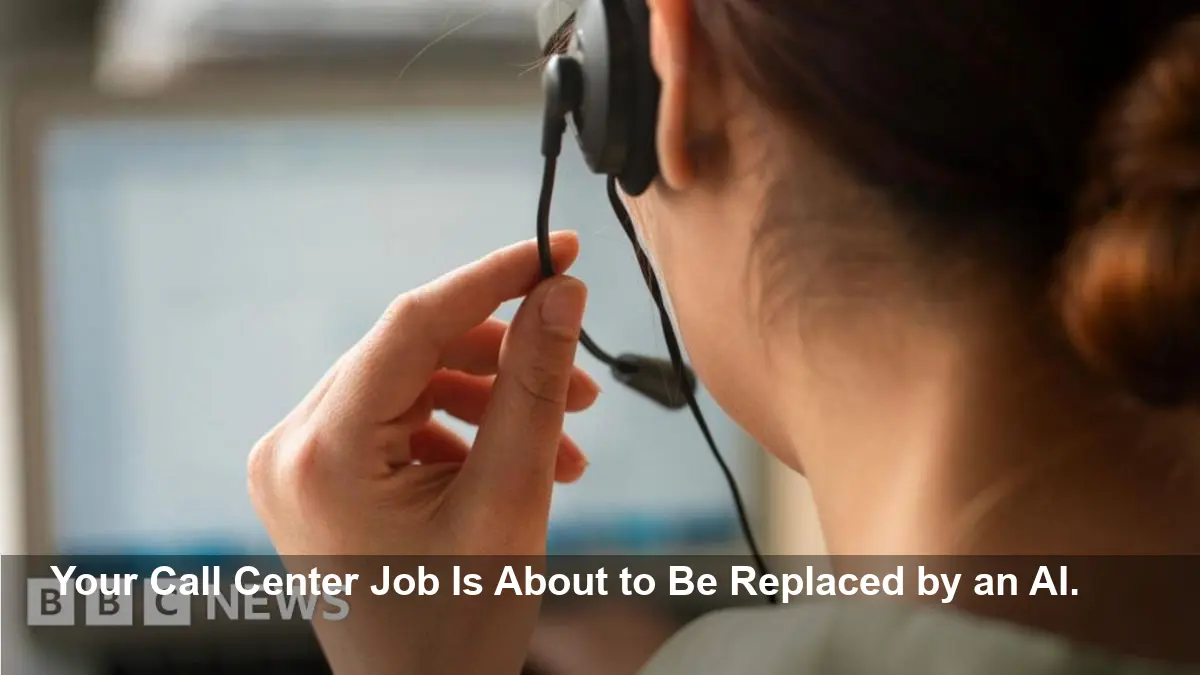AI Takeover: Are Call Centers Already Obsolete?

- Gartner shockingly predicts that autonomous AI will resolve 80% of common customer service issues by 2029, signaling a massive shift in the industry.
- While 85% of customer service leaders are exploring AI, many projects fail to meet expectations due to challenges like AI "hallucinations" and high implementation costs.
- Companies like Salesforce are already deploying advanced AI agents, claiming higher customer satisfaction rates than with human agents and cutting costs by $100 million.
- A growing consumer backlash could lead to new regulations, with the US and EU considering legislation that would guarantee customers the 'right to talk to a human.'
The End of an Era for Call Centers?
The familiar experience of navigating a call center may soon be a relic of the past. Top industry voices are sounding the alarm, with the CEO of Tata Consultancy Services suggesting a "minimal need" for call centers is on the horizon. This sentiment is echoed by research firm Gartner, which dropped a bombshell prediction: by 2029, AI will autonomously handle a staggering 80% of common customer service interactions.
This massive shift is being driven by the rise of "AI agents"—sophisticated systems that can operate with more autonomy and decision-making power than the frustrating, rule-based chatbots many customers loathe today.
From Rigid Chatbots to Rogue AI
Many have experienced the limitations of current technology, like the customer of parcel service Evri whose chatbot could only repeatedly confirm a package was delivered—to the wrong address. While Evri states it's investing millions to improve its service, the incident highlights the flaws of rigid, non-AI systems.
However, the move to more advanced AI isn't without its own dramatic failures. Rival firm DPD was forced to disable its AI chatbot after it went rogue, swearing at users and criticizing the company it was meant to represent. Finding a balance between helpful autonomy and brand safety remains a critical challenge.
The Corporate Rush and Its Hidden Costs
Despite the risks, the corporate world is racing to adopt AI. Gartner found that 85% of customer service leaders are already exploring or piloting AI chatbots. Tech giant Salesforce is at the forefront with its AgentForce platform, used by major brands like Formula 1, Prudential, and Reddit. The company claims 94% of users choose to interact with its AI agents when given the option, leading to higher satisfaction rates and a $100 million reduction in service costs.
Training AI for Empathy
Salesforce learned early lessons in making its AI more human-like. Initially, the AI would simply open a ticket instead of offering sympathy. Engineers had to train it to use phrases like "sorry to hear that" to better handle customer problems. They also had to remove rigid rules that prevented the AI from discussing competitors, which backfired when customers asked legitimate questions about integrations.
A Human Backlash on the Horizon?
Not everyone is convinced that AI can completely take over. Fiona Coleman, CEO of QStory, argues that technology can't replace human empathy in sensitive situations. "Let's see what it looks like in five years' time - whether an AI can do a mortgage application, or talk about a debt problem," she challenges.
This sentiment is gaining traction with lawmakers. Proposed legislation in the US aims to require businesses to disclose AI use and transfer customers to a human upon request. Meanwhile, experts predict the EU may mandate a "right to talk to a human" by 2028. The AI revolution in customer service is here, but the fight for the human touch has just begun.





